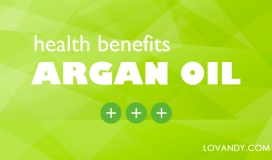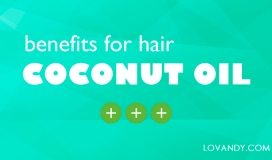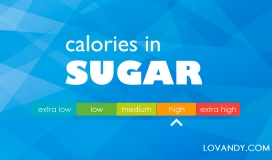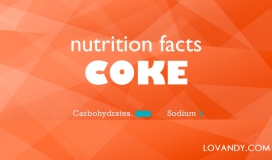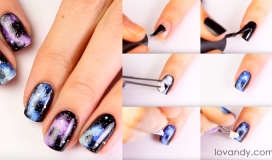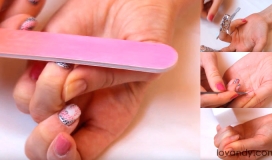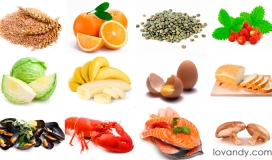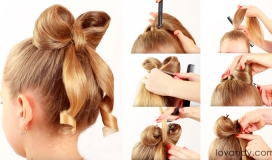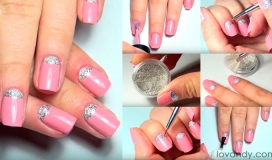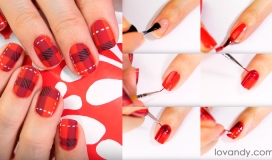Vitamins are essential elements for your body. It needs such elements to work properly. In addition, the lack of vitamins may cause some problems to your hair, nails and skin, which means your beauty would suffer.
For example, the reduction of some substances may lead to rashes, color worsening or even wrinkles and pouches under eyes. In order to fix these problems, you need to change your diet and saturate your skin with some topical medications. In this case, facial vitamins in ampoules may help. Let us find out what kind of vitamins you need and how to use them.
Vitamin A
What is A vitamin?
Vitamin A is a group of nutrients, which contains retinol. It performs a lot of biological functions. Example given, retinol stimulates growth and development of many cells. It provides the protection for your body, therefore is extremely necessary.
Why do you need it?
A vitamin protects your skin and stimulates hair growth. It also makes your nails strong and prevents fragility. You need to have more retinol to make your body healthy not only inside, but outside as well.
Sources of retinol:
- Potato;
- Carrots;
- Kale;
- Squash;
- Cos;
- Dried apricots;
- Cantaloupe melon;
- Sweet red peppers;
- Tuna.
Vitamin B1
What is B1?
B1 vitamin is also known as thiamin. It is one of the most important nutrients for metabolism of fats, proteins and carbohydrates. B1 helps your body normalize growth processes and maintain proper functioning of the heart, nervous and digestive systems. Some bad diet or too much alcohol may cause the lack of it.
For what is it good?
It is needed for treatment of skin diseases. In general, this vitamin may help you get rid of maladies, caused by an unstable emotional background. For example, psoriasis, eczema, itching, pyoderma and dermatitis. Also, it is a good nutrient to fight signs of aging: it smooths wrinkles and even may help to get rid of double chin.
Sources of B1 vitamin:
- Fish;
- Pork;
- Seeds of sunflower;
- Nuts (Macadamia);
- Wheat bread;
- Green peas;
- Squash;
- Asparagus;
- Dry roasted soy beans;
- Other beans.
Vitamin B2
What is B2 vitamin?
It is known as riboflavin, one of the most important water-soluble vitamins. Vitamin B2 is needed to form red blood cells and antibodies. In addition, it regulates some growth and reproductive functions. Therefore, it controls skin, nails and hair health.
B2 benefits
Those who wants to always look attractive and stay young might really need it. This vitamin promotes cell regeneration and provides them with oxygen. This way, your skin receives all the nutrients it needs to look beautiful for a long time. No rashes will form on epidermis, and skin color will improve.
Sources of B2:
- Cheese;
- Almonds;
- Beef and lamb;
- Oily fish;
- Eggs;
- Pork;
- Mushrooms;
- Sesame seeds;
- Seafood.
Vitamin B5
B5 characteristics
Its scientific name is pantothenic acid. This name in Greek means ‘everywhere’, as this nutrient is extremely widespread. B5 helps with metabolism of fats, carbohydrates and amino acids. Pantothenic acid has a powerful reparative effect on mucous membranes.
When to use it?
It is exceedingly needed for oily skin types, as in large quantities vitamin B5 reduces fat production of sebaceous glands. As the result, the use of this vitamin helps to smooth wrinkles in a record time. It also makes contour clear and strengthens the epidermis.
Where can you find it?
- Mushrooms;
- Cheese;
- Fish;
- Avocados;
- Eggs;
- Lean pork;
- Beef and Veal;
- Chicken or turkey;
- Sunflower seeds.
Vitamin B6
What is B6?
B6 vitamin is a common name for nutrients that have a biological activity of pyridoxine. Your body uses it in synthesis of serotonin, dopamine, epinephrine and norepinephrine. B6 vitamin is commonly used in treatment of a large quantity of epidermis diseases.
B6’s use
It is not only used by doctors. The proper level of pyridoxine helps to fight wrinkles and skin disadvantages. By making your epidermis healthy, it ameliorates your beauty.
Sources of B6:
- Sunflower seeds;
- Pistachio nuts;
- Tuna;
- Turkey;
- Pork;
- Prunes;
- Beef;
- Bananas;
- Avocados.
Vitamin B9
What is B9?
B9 vitamin (as known as folic acid) is essential for growth and development of immune and circulatory systems. This means that B9 is needed to create new cells and maintain them healthy. Medulla is first to suffer from the lack of folic acid.
Why you need B9?
This vitamin grants skin protection against harmful solar radiation. In addition, it fights rushes, which occur at puberty. Therefore, it is important for teens to have a proper level of B9.
B9 sources:
- Beans;
- Lentils;
- Spinach;
- Asparagus;
- Lettuce;
- Avocado;
- Broccoli;
- Mangos;
- Oranges;
- Wheat bread.
Vitamin B12
What is B12?
Its second name is cyanocobalamin. This nutrient provides different types of enzymatic reactions. This means, your body needs it for proper metabolism. B12’s suction mostly happens in stomach and intestines, so you need to eat properly if you want it to help.
B12’s help
Its main function is cells regeneration. Therefore, this vitamin improves complexion and smooths wrinkles. Also, it makes contour clearer and fights any face swelling (which occurs in old age).
Natural sources of B12:
- Shellfish;
- Liver;
- Fish;
- Crustaceans;
- Tofu;
- Bran;
- Red meat;
- Dairy;
- Cheese.
Vitamin C
C vitamin info
Everybody knows it as ascorbic acid. Its biological role is extremely high. Vitamin C takes part in producing serotonin from tryptophan, forms catecholamines and corticosteroids. In addition, it stimulates the synthesis of interferon, therefore, is involved in immunomodulation.
Why use it?
Inter alia, this vitamin helps with collagen reproduction, which is necessary for flexibility and elasticity of epidermis. It has wound-healing properties, so effectively fights various kinds of rashes. In general, ascorbic acid helps you stay young and beautiful on many different levels.
Sources of ascorbic acid:
- Peppers;
- Guavas;
- Dark green leafy vegetables;
- Kiwi;
- Broccoli;
- Strawberries;
- Citrus fruits;
- Tomatoes;
- Peas.
Vitamin D
Vitamin D properties
D vitamin (or D3) is actually a group of biologically active substances (mostly cholecalciferol and ergocalciferol). Its main function is absorption of calcium and phosphorus from food in the small intestine. It is also believed to take part in the regulation of cell proliferation, metabolism and stimulation of some hormones synthesis.
When do you need it?
As you may see by its biological functions, this vitamin promotes cell regeneration, meaning your skin will stay young for a long time if you consume it frequently.
Vitamin D sources:
- Cod liver oil;
- Mushrooms;
- Oily fish;
- Caviar;
- Cereals;
- Tofu;
- Dairy;
- Pork;
- Eggs;
- Soy yogurt.
Vitamin E
What is E vitamin?
Vitamin E is a group of natural compounds, derivatives of tocol. Mostly it is tocopherol. It has a huge role in metabolism, helping your circulatory system, liver and stomach work properly.
E’s help
This vitamin rejuvenates your skin. It smooths wrinkles and makes face contour clear. In addition, tocopherol provides cells regeneration and protects the epidermis from harmful solar radiation.
E’s sources:
- Spinach;
- Nuts;
- Sunflower seeds;
- Avocados;
- Shellfish;
- Trout;
- Olives;
- Broccoli;
- Squash and pumpkin.
Vitamin K
What is K?
Its real name is phylloquinone. This vitamin helps in bones metabolism and kidney’s work; takes part in calcium absorption. In addition, this nutrient provides interaction of calcium and vitamin D.
Best use of vitamin K
You should consume more phylloquinone for its bleaching properties, as it may help to get rid of pigmentations and freckles. It also reduces swelling and inflammation. Therefore, this vitamin has some really outstanding and unique properties.
Sources of phylloquinone:
- Herbs;
- Kale;
- Onions;
- Brussels sprouts;
- Chili powder;
- Asparagus;
- Pickles;
- Soybeans;
- Olive oil.
Vitamin P
Vitamin P characteristics
This vitamin (known as group of flavonoids) helps to reduce permeability and fragility of capillary. With a proper level of P vitamin in your body, the concentration of hyaluronic acid increases, which leads to increasing of capillaries’ elasticity. Furthermore, it has antioxidant properties and protects against oxidation of ascorbic acid.
Why do you need it?
It has an ability to improve complexion by refreshing it. Making your capillaries healthier, it rejuvenates face skin and emphasizes natural beauty. In addition, flavonoids help to get rid of pouches under eyes.
Where to find flavonoids?
- Seeds;
- Cheese;
- Salmon;
- Shellfish;
- Nuts;
- Pork;
- Beef;
- Dairy;
- Tofu.
Vitamin H
What is H vitamin?
Its original name is biotin. This nutrient helps in metabolism of fatty acids and generates glucose. In addition, biotin participates in production of enzymes.
When to use it?
This vitamin is really good for refreshing of face skin. It gently exfoliates dead skin cells and promotes the creation and development of new ones. This means you might need more of biotin after some diet or facial treatment.
Sources of H:
- Liver;
- Chicken;
- Seafood;
- Milk;
- Eggs;
- Cheese;
- Yeast;
- Tuna and salmon;
- Berries.
Face vitamins in ampoules should be used specifically for the problem you have. Remember to consult with a specialist before using any kind of these. Generally, these drugs are used in conjunction with other components in the form of facial masks. It is also a good idea to have some healthy diet during the course of treatment.















